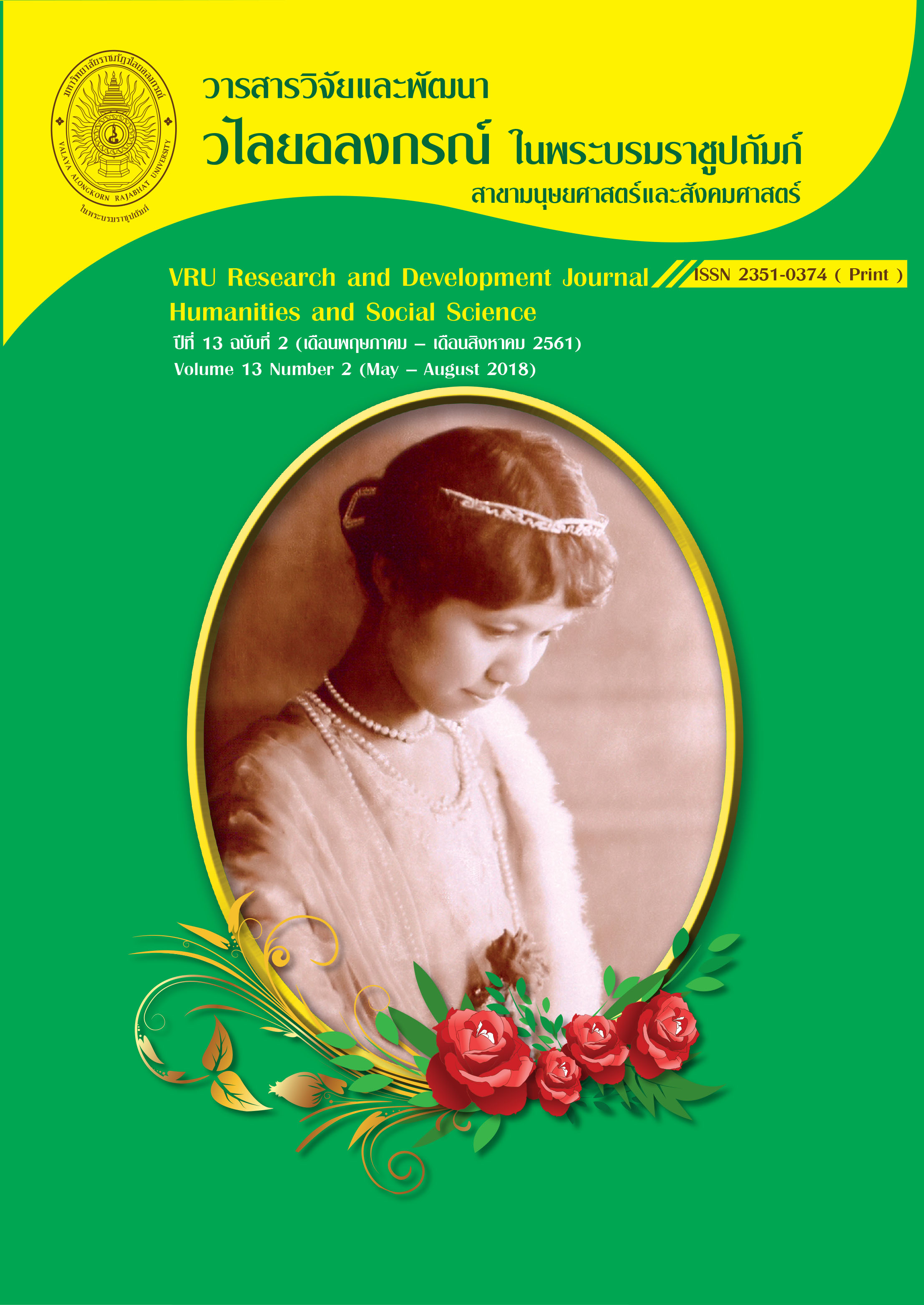THE MOTIVATION THAT AFFECTS JOB SATISFACTION OF ELDERLY PEOPLE IN BANGKOK
Main Article Content
Abstract
The objective of this research is to observe the motivation that affects job satisfaction of elderly people in Bangkok by using a specific sampling from a group of 400 Thai elders who work in Bangkok which the statistics that were used were percentage, mean, standard deviation and tested the hypothesis by testing the population difference and multiple linear regression analysis. The result shows that the majority of respondents are males between the age of 60-64 who have a marital status and still together. Most of them have high school diploma, two children and the salary of 5,001 - 10,000 baht per month. 76.9 percent of them earn their own livings and live in their own house which is in Bangkok with no any debt. Moreover, most of the respondents do not have any congenital disorder. The ones who have congenital disorder may have more than one disease, and the most common diseases elderly experience are diseases related to bones and joints and diabetes. 83.2 percent of elders are being taken care when they are sick. Only 56.4 percent of them has attended, studied and learned from the institute, organization or elderly association receives the privilege of elders. 74 percent of them have adequate income for their expenses, and the majority has an opportunity to join social activities at least once a month.
Elders who are still working in Bangkok have the motivation and job satisfaction in a moderate level. When considering each aspect, it shows that every aspect has a moderate mean except the motivation for responsibility that has the highest mean and is in the high criterion, and the motivation for progress is the lowest when compared to other aspects. Considering the findings, it was found that the elderly working in Bangkok were most enthusiastic about their assigned work. They were satisfied with the increase in annual salary and minimum bonus when compared with other items.
The hypothesis test shows that there were not any significant differences in the motivation and job satisfaction towards elders with different sex, age, marital status, number of children, number of family members, congenital disease, and participation in social activities while there were significant differences in the motivation and job satisfaction towards elders who are still working in Bangkok with different level of education, occupation, average income per month, current residence, debt, care, and having adequate income for expenses at the .05 level of significance.
When testing the motivation assumptions that affect the job satisfaction of the elderly, it was found that the motivation in every aspect affects the job satisfaction of the elderly in Bangkok at the .05 level of significance by which the equation of the motivation to work that affects the job satisfaction of the elderly in Bangkok was 77.1 percent.
Keywords : Motivation to work, Job satisfaction, Elder
Article Details
ลิขสิทธิ์บทความวิจัยที่ได้รับการตีพิมพ์เผยแพร่ในวารสารมนุษยศาสตร์และสังคมศาสตร์ วไลยอลงกรณ์ ในพระบรมราชูปถัมภ์ ถือเป็นกรรมสิทธิ์ของคณะมนุษยศาสตร์และสังคมศาสตร์ มหาวิทยาลัยราชภัฏวไลยอลงกรณ์ ในพระบรมราชูปถัมภ์ ห้ามนำข้อความทั้งหมดหรือบางส่วนไปพิมพ์ซ้ำ เว้นแต่จะได้รับอนุญาตจากมหาวิทยาลัยเป็นลายลักษณ์อักษร
ความรับผิดชอบ เนื้อหาต้นฉบับที่ปรากฏในวารสารมนุษยศาสตร์และสังคมศาสตร์ วไลยอลงกรณ์ ในพระบรมราชูปถัมภ์ เป็นความรับผิดชอบของผู้นิพนธ์บทความหรือผู้เขียนเอง ทั้งนี้ไม่รวมความผิดพลาดอันเกิดจากเทคนิคการพิมพ์


